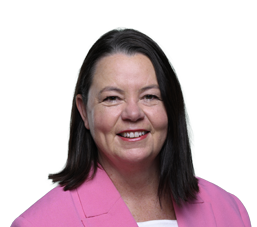Interview with Bloomberg TV, Washington
PAUL ALLEN: Well, Australia has also announced a $1.3 billion expansion in critical minerals financing as part of its clean energy push. It's a key item on Prime Minister Anthony Albanese's agenda during his four-day visit to Washington. Australian Resources Minister Madeleine King spoke to Bloomberg about their talks with US officials.
MINISTER MADELEINE KING: The meetings have all been really terrific and I've met with some really enthusiastic American officials who have been just great, very welcoming, of course, and the relationship between our two countries is so important to us in Australia. My meetings have been around in my portfolio of resources the need for critical minerals and how the United States and Australia can work together to make sure we get enough critical minerals out of the ground but also process them because they are the metals and minerals that would be needed for clean and green energy technologies into the future. So, that's really been my focus here on this visit.
JOE MATHIEU: That's a pretty big job. It's something that we talk about here almost every day with regard to the EV conversion and the Biden Administration's push in this area. And you can't talk about it without talking about China and the role that it will play in what some see as hoarding, some of these rare earths. How do you see it?
MINISTER MADELEINE KING: Yeah, well, China's been developing this industry for 20 or 30 years, so they're really ahead of most Western democracies. I think, to be honest, a lot of us stopped mining, to be honest, and China took up that and they've invested in the technology, and we maybe did not do so as much. And so, it's now important for us to make sure we have diversified supply chains because no matter what the product, whether it's critical minerals or rare earths, having options around where you get these things are going to be really important. And because we know we need these critical minerals and rare earths for the green energy transition, we want to make sure we can all get hold of them.
JOE MATHIEU: As you mentioned, though, not just where you get them, but how you process them.
MINISTER MADELEINE KING: Indeed.
JOE MATHIEU: And China's far ahead there.
MINISTER MADELEINE KING: Well, they're far ahead but I think Australia’s increasing its share of responsibility for processing critical minerals. But we also have very high environmental and governance standards and I think that's really important to most of the world anyway, that those standards apply so that we know that when we're extracting these minerals and then processing them, the environment is part of our concern as well. We make sure we do it responsibly and we need to do that. So, we keep the social licence and community support for mining, which is very much present in Australia and very important to us.
KAILEY LEINZ: Minister, you told Bloomberg about a year ago that breaking China's grip on the critical mineral supply chain was a pipe dream. Is that still how you feel or is that view evolving?
MINISTER MADELEINE KING: Well, I think it is very difficult because it is, as I said, two or three decades ahead of the rest of the world. So, last year, 96 per cent of lithium spodumene from Australia went to China for processing. So, even if we – of the three lithium hydroxide plants that are currently being built in Australia, when they're at full production, they'll still only get 10 per cent of lithium hydroxide production, and that's going to take a few years. So, you can see it's going to take time, but we still have to keep at it. We just need to have alternatives. And I think it's important to realise this is just about sensible competition. Australia has these natural resources. We have some of the largest reserves of lithium, just to name one, certainly the largest reserves of nickel. So, we want to make sure we do all that we can, and we will do that with our American friends to process those minerals in a responsible way for basically the clean energy revolution.
HAIDI STROUD-WATTS: Australian Resources Minister Madeleine King, speaking with Bloomberg's Joe Mathieu and Kailey Leinz.

